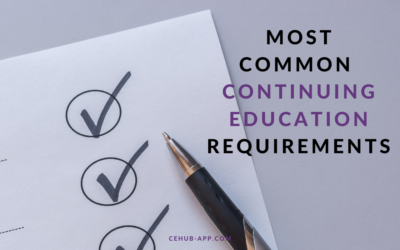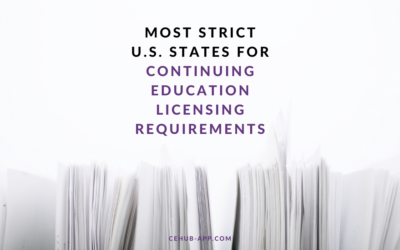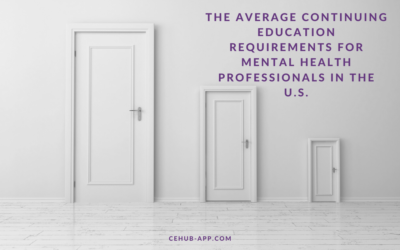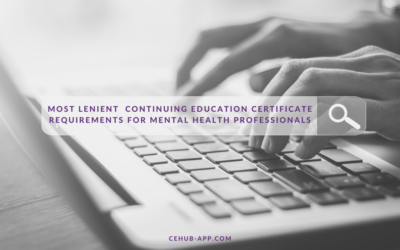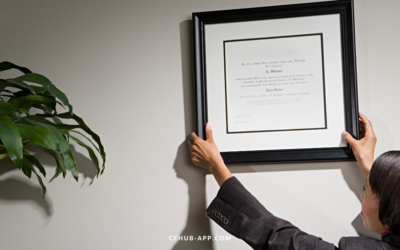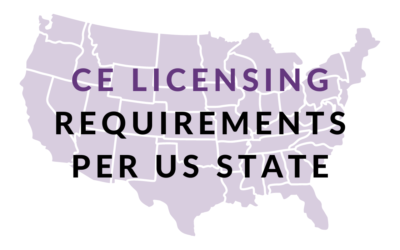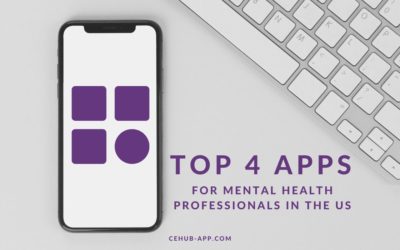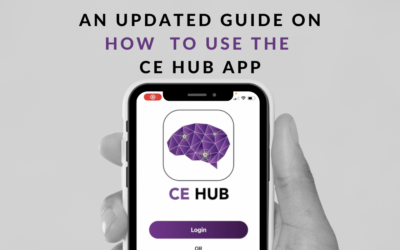As a licensed professional counselor (LPC) in the state of Utah, it is your responsibility to adhere to continuing education requirements each period in order to renew your license. Beyond license renewal being key to you maintaining your practice, continuing education is essential to stay abreast of what is happening in your field – something your clients will always appreciate you taking seriously. Education is how we all continue to learn and further hone our skills and expertise, so it’s certainly something to be celebrated. Though education is fantastic, keeping on track with the many hours you need to fulfill can be a challenge. Thankfully, there is a fantastic resource available to help you with that. Before we dive into the resource, let’s start by outlining what is required of Utah LPCs in order to renew their license every cycle.
Licensee Requirements for Utah Licensed Professional Counselors
As a licensed professional counselor in the state of Utah, the continuing education requirements are quite similar to those of your MFT and LCSW colleagues. LPCs must earn 40 hours of continuing education every two years. Given licenses expire on September 30, all hours need to be obtained before that date in order for a license to be renewed for the next cycle. Within the required 40 hours, six must be specifically related to ethics/law in the licensee’s practice and 2 related to suicide prevention. Unique to LPCs, there is no list of entities a course or program must be earned through; however, the education must be relevant to the licensee’s practice, be conducted by qualified professionals, and documentation is required. That does allow LPCs flexibility to use their own discretion and identify the education they feel would benefit them most. Just be certain not to exceed the maximum of 10 hours of distance learning each cycle.
Note: continuing education credits are subject to audits, so it’s advised licensees maintain their own personal records for at least four years.
Key Takeaways:
- Utah Licensed Professional Counselors must earn 40 hours of continuing education every two years
- Six hours have to be related to ethics/law in their field and two hours in suicide prevention
- Licenses expire on September 30 of even-numbered years
Given licensed professional counselors are likely to achieve their continuing education certificates in increments, from various workshops, conventions, agencies, and institutions, there is a lot of documentation to keep track of (potentially 40 or more certificates throughout the course of two years). As proof is required when you apply for renewal and will be required if you are chosen for an audit, it’s imperative you keep all of those certificates in a safe place – easily accessible and easy to track your progress. CE Hub is the safe place you need to work through your continuing education with ease.
What is CE Hub?
CE Hub is an app built specifically for counselors. Recognizing the difficulty that is storing continuing education certificates and keeping track of your hours, CE Hub was created to take the stress out of continuing education requirements. Instead of worrying throughout the period that you may not be on track, or perhaps that you may have lost a document or two, CE Hub provides you the peace of mind you need to enjoy the learning process. Using the platform is simple: you sign up, upload your continuing education certificates as you obtain them, then CE Hub handles the rest. All of your continuing education credits are tracked for you, and you even receive a reminder when it’s time to renew your license. Alleviate the stress of continuing education requirements by taking advantage of CE Hub today!
Disclaimer: this content is for informational purposes only. Licensees should always confirm their continuing education requirements with their respective governing agency. In the state of Utah, LPCs can clarify anything about their license by contacting the Utah Department of Commerce Division of Occupational and Professional Licensing at the number (801) 530-6628 or via email at b3@utah.gov.
Reference Links:


